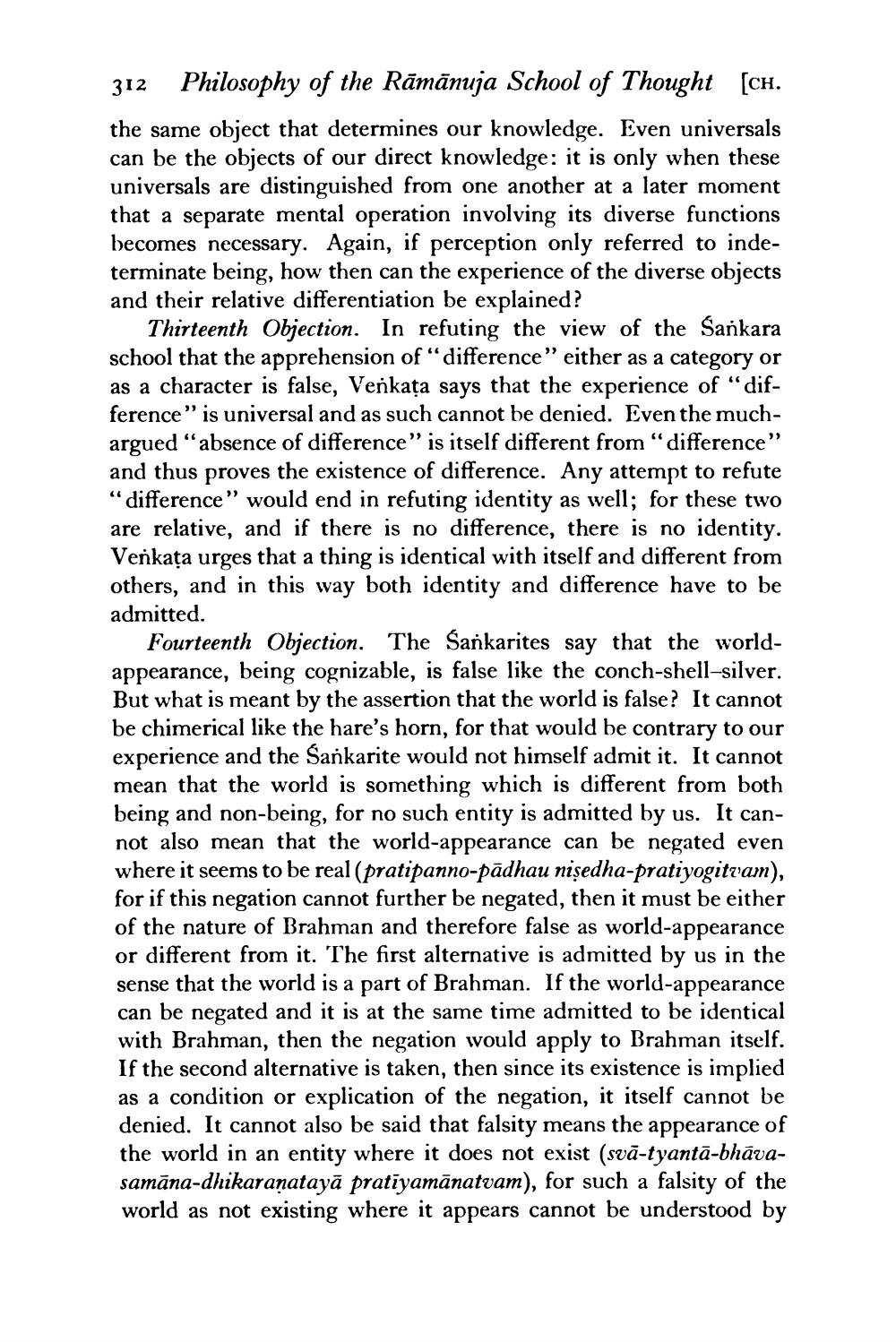________________
312
Philosophy of the Rāmānuja School of Thought [CH.
the same object that determines our knowledge. Even universals can be the objects of our direct knowledge: it is only when these universals are distinguished from one another at a later moment that a separate mental operation involving its diverse functions becomes necessary. Again, if perception only referred to indeterminate being, how then can the experience of the diverse objects and their relative differentiation be explained?
Thirteenth Objection. In refuting the view of the Sankara school that the apprehension of "difference" either as a category or as a character is false, Venkata says that the experience of “difference" is universal and as such cannot be denied. Even the muchargued "absence of difference" is itself different from "difference" and thus proves the existence of difference. Any attempt to refute "difference" would end in refuting identity as well; for these two are relative, and if there is no difference, there is no identity. Venkata urges that a thing is identical with itself and different from others, and in this way both identity and difference have to be admitted.
Fourteenth Objection. The Sankarites say that the worldappearance, being cognizable, is false like the conch-shell-silver. But what is meant by the assertion that the world is false? It cannot be chimerical like the hare's horn, for that would be contrary to our experience and the Sankarite would not himself admit it. It cannot mean that the world is something which is different from both being and non-being, for no such entity is admitted by us. It cannot also mean that the world-appearance can be negated even where it seems to be real (pratipanno-pādhau niṣedha-pratiyogitvam), for if this negation cannot further be negated, then it must be either of the nature of Brahman and therefore false as world-appearance or different from it. The first alternative is admitted by us in the sense that the world is a part of Brahman. If the world-appearance can be negated and it is at the same time admitted to be identical with Brahman, then the negation would apply to Brahman itself. If the second alternative is taken, then since its existence is implied as a condition or explication of the negation, it itself cannot be denied. It cannot also be said that falsity means the appearance of the world in an entity where it does not exist (svā-tyantā-bhāvasamāna-dhikaraṇatayā pratīyamānatvam), for such a falsity of the world as not existing where it appears cannot be understood by




